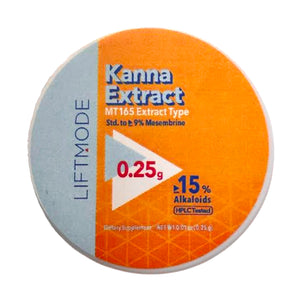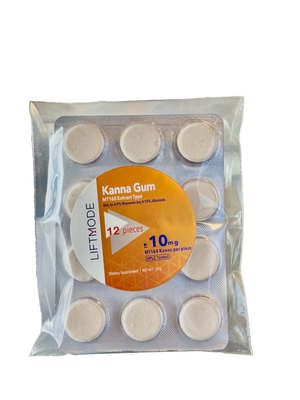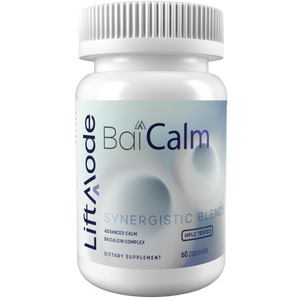What is Vitamin C (Calcium Ascorbate)?
Ascorbic acid, also known as Vitamin C, is an essential vitamin known for its powerful antioxidant status. Calcium Ascorbate is the calcium salt and neutral version of Ascorbic acid that is commonly sold as a dietary supplement. It is a water soluble mineral ascorbate that is also commonly used as a food additive.
Vitamin C is an essential vitamin that must be obtained exogenously as your body doesn’t produce it on its own. Calcium ascorbate supplements are used to support healthy vitamin C levels, a vitamin that is involved in numerous bioactive reactions in the body, such as collagen synthesis (for connective tissue health and wound healing), iron absorption, immune function, and the production of certain neurotransmitters.
[1]
In this article, we will be covering the top questions regarding uses of Calcium Ascorbate, i.e. common dosage, side effects and important interactions. Take a read through this great article about how to take Calcium Ascorbate.
![]()
How Much Vitamin C (Calcium Ascorbate) to Take: Recommended Dosage?
Vitamin C is a water-soluble vitamin needed by your body for many functions. It is commonly recommended to meet your daily requirements of Vitamin C from foods like broccoli, red pepper, kale, kiwi and oranges.
Nonetheless, in the case of diets lacking adequate fruit and vegetable intake or higher vitamin C requirements (i.e. smokers, pregnancy and malabsorption), many people turn to Calcium ascorbate supplements.
The recommended daily dosage for Vitamin C (Calcium Ascorbate) is 90 mg for men, 75 mg for women, and 80-120 mg for pregnant and breastfeeding women. Smokers normally need an additional 35 mg above the recommended dosage for adults.
[2]
Excess Vitamin C is unlikely to cause any harmful side effects because the body tightly controls its absorption of vitamin C through excretion in the urine. However, generally, studies suggest a maximum daily intake of 2000 mg.
[3]
How to Take Vitamin C (Calcium Ascorbate)?
Calcium Ascorbate is available as a dietary supplement as a powder or a capsule. Calcium ascorbate is often included in multivitamin supplements.
Our Liftmode Calcium Ascorbate comes in a powder form, which is believed to be the most absorbable form.
You can take Calcium carbonate with or without food as it is water soluble. Most people find it easiest to digest 20-30 minutes before a meal. As a potent antioxidant, Calcium ascorbate is a great addition to smoothies or sprinkled on fruit.
What is the difference between Ascorbic Acid and Calcium Ascorbate?
Vitamin C is sold as a dietary supplement in various forms. These include ascorbic acid, calcium ascorbate, sodium ascorbate and other mineral ascorbates.
While
Ascorbic acid is the preferred form due to its bioavailability, studies have shown both Ascorbic acid and Calcium Ascorbate exhibit equivalent antioxidant activity.
Furthermore, because of its acidity, Ascorbic acid may cause gastrointestinal symptoms such as acid reflux, nausea and an upset stomach, especially in individuals with gastrointestinal issues.
[4]
Studies have shown taking Vitamin C in the form of Calcium Ascorbate does not cause such side effects and is a suitable alternative for those with intestinal sensitivities. One study analysed gastric pH in models of Ascorbic acid and Calcium ascorbate in order to compare gastrointestinal side effects. The results showed gastric pH was significantly higher in the latter compared to that of Ascorbic acid, indicating Calcium ascorbate has increased bioavailability for individuals with gastric conditions.
[5]
![]() Vitamin C (Calcium Ascorbate) Side Effects and Interactions
Vitamin C (Calcium Ascorbate) Side Effects and Interactions
Calcium ascorbate (Vitamin C) is considered safe and effective for adults in recommended dosage, and is listed as a Generally Recognized As Safe (GRAS) substance.
[6]
However, Calcium Ascorbate (Vitamin C) can cause mild side effects which include upset stomach, nausea, loss of appetite and constipation.
[7]
Avoid Vitamin C if you suffer from a metabolic deficiency known as glucose-6-phosphate dehydrogenase
(G6PD) deficiency. High doses of vitamin C can cause hemolysis in people with this disorder.
Long-term use of Calcium ascorbate may cause kidney stones in individuals with kidney problems or with a history of
kidney stones. If you suffer from any kidney problems, have high calcium levels or have any allergic reactions, avoid taking this product.
Furthermore, avoid use if you have a
blood iron condition such as thalassemia or hemochromatosis. Vitamin C enhances iron absorption and may worsen these conditions.
Vitamin C and other antioxidants may interfere with
chemotherapy drugs. Consult your doctor before taking this product.
In terms of interactions, the calcium in this supplement
may inhibit the absorption of certain drugs. Some of these medications include antibiotics such as ciprofloxacin, levofloxacin, thyroid medications (levothyroxine) and bisphosphonates (alendronate). To stay on the safe side, consult your doctor or pharmacist before trying Calcium ascorbate.
Finally, there isn’t enough information regarding the use of Calcium ascorbate during pregnancy and breast-feeding, and should therefore be avoided.
Conclusion
To sum it up, Vitamin C (Calcium Ascorbate) is a well-studied nutraceutical that is important for the functioning of the body. It is needed for metabolism, detoxification of the liver, formation of connective tissue, skin elasticity and immune strength. Additionally, Calcium ascorbate is readily absorbable, especially for those with gastrointestinal sensitivities.
Calcium ascorbate can be taken with or without food. If you experience any stomach upset, consume with meals and consult your primary health provider for any concerns. Calcium ascorbate may interfere with medications and hinder their absorption. If you have any underlying condition or are taking any medications, please speak to your doctor or pharmacist before trying this product.
References
[1] Hamrick I, Counts SH. Vitamin and mineral supplements. Prim Care. 2008;35:729–747.
[2] Institute of Medicine. Food and Nutrition Board. Dietary Reference Intakes for Vitamin C, Vitamin E, Selenium, and Carotenoids. Washington, DC: National Academy Press, 2000.
[3] Jacob RA, Sotoudeh G. Vitamin C function and status in chronic disease. Nutr Clin Care. 2002 Mar-Apr;5(2):66-74. doi: 10.1046/j.1523-5408.2002.00005.x. PMID: 12134712.
[4] Lee, J. K., Jung, S. H., Lee, S. E., Han, J. H., Jo, E., Park, H. S., Heo, K. S., Kim, D., Park, J. S., & Myung, C. S. (2018). Alleviation of ascorbic acid-induced gastric high acidity by calcium ascorbate
in vitro and
in vivo.
The Korean journal of physiology & pharmacology : official journal of the Korean Physiological Society and the Korean Society of Pharmacology,
22(1), 35–42. https://doi.org/10.4196/kjpp.2018.22.1.35
[5] Ibid.
[6] Final Report of the Safety Assessment of L-Ascorbic Acid, Calcium Ascorbate, Magnesium Ascorbate, Magnesium Ascorbyl Phosphate, Sodium Ascorbate, and Sodium Ascorbyl Phosphate as Used in Cosmetics1. (2005).
International Journal of Toxicology,
24(2_suppl), 51–111.
https://doi.org/10.1080/10915810590953851
[7] Lee, J. K., Jung, S. H., Lee, S. E., Han, J. H., Jo, E., Park, H. S., Heo, K. S., Kim, D., Park, J. S., & Myung, C. S. (2018). Alleviation of ascorbic acid-induced gastric high acidity by calcium ascorbate
in vitro and
in vivo.
The Korean journal of physiology & pharmacology : official journal of the Korean Physiological Society and the Korean Society of Pharmacology,
22(1), 35–42. https://doi.org/10.4196/kjpp.2018.22.1.35








